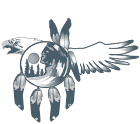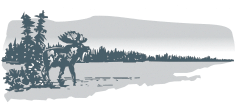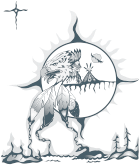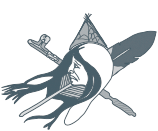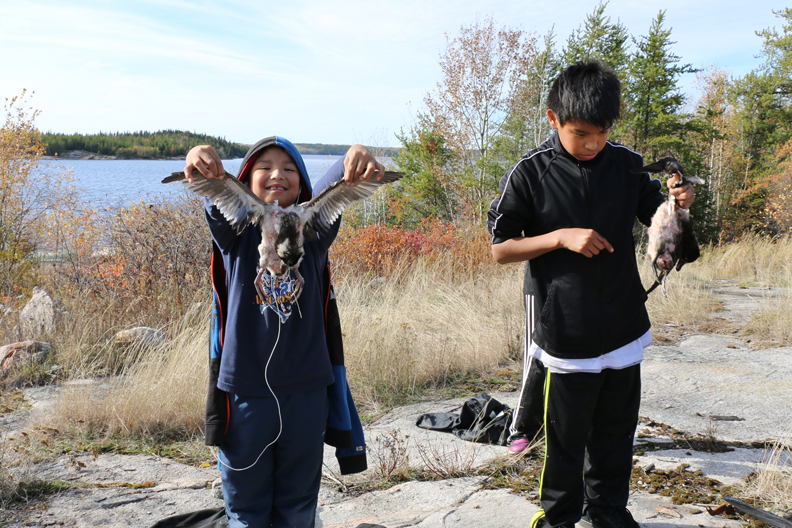
Melba Green grew up in Bloodvein River First Nation. Today, she is a Pimachiowin Aki Guardian; a responsibility she takes very seriously. “This is what I’m supposed to do, help people, help the youth and watch over the land,” she says.
With her one-year-old Rottweiler Rocky by her side, she takes daily walks on the land. “I stop and listen to hear activities like gun shots, walking, people hunting or on a quad,” Melba explains. “I check on the water, the plants, medicines and trees.”
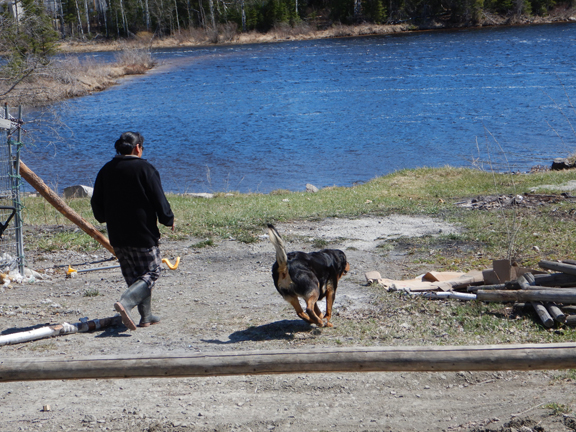
Melba also listens to the concerns of people in her community. She has regular meetings with local hunters and trappers who talk with her about what is happening on the land. It was during one of these meetings that the idea for a new school program was born—Melba often talks to the students in the Miskooseepi School about what it means to keep the land. When she shared this at a meeting, she quickly had four male volunteers who wanted to share their knowledge and meet with students regularly to discuss the roles and responsibilities of men and women. Melba pitched the idea to women in the community and, once again, had eager volunteers.
Melba Reflects on Her Childhood
Anishinaabeg have very specific roles within their families and in their communities. Melba grew up the oldest sibling with three brothers and one sister. She says that when boys turn eight years old, they go out onto the land to learn how to hunt. Melba was surprised when her own young brother was being taken out into the bush. “I was scared that something bad might happen to him,” she remembers. My mom told me, ‘That’s just how it is’.”
“Girls are supposed to know what our mothers do at home; cook, clean, help with the kids… That’s what we’re taught, through oral lessons,” she adds.
While many young people learn from their own parents or grandparents, some children may not have a role model to teach them. “But they do have guidance in the community and at the school,” says Melba.
Looking back, she notes that she ran to her grandmothers when she wanted to know something. “Now when I see young kids, a lot of their grandparents are gone.”
The new program will help young people understand their roles and learn the skills needed to become responsible adults. The COVID-19 school shut down has put the program on pause but Melba and her group of volunteers look forward to implementing it as soon as they are able.
The Roles of Men and Women
Male students will learn about:
- Hunting and trapping
- Fishing
- Being respectful towards the land
- Being respectful to others
Female students will learn about:
- Harvesting plants and medicines
- Responsibilities caring for the home
- Their moon time
- Parental responsibilities
Today’s Culture Shock
Without a high school, after grade 9, students go to live with extended families in urban centres like Winnipeg, Selkirk or Riverton to finish their schooling.
“It’s culture shock,” says Melba. “We have to do our jobs to help the youth. We want to show them that there is another way of life.”
The new program will do just that—help students learn to survive on the land and live healthy lifestyles.
Bloodvein River First Nation is looking forward to completion of a new K-10 school within the community in August 2021. New K-12 schools being constructed in Poplar River First Nation and Little Grand Rapids First Nation are also expected to open in August 2021.
